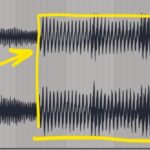Likely everyone knows someone who is a musician or artist. They could be a family member or friend. Maybe they are on the worship team at church. Regardless of relationship, you probably know someone who is a musician, either solo or in a band. If you are a musician, you most definitely know a musician or two.
What I hope to accomplish by this writing is to share one musician’s emotions and thoughts, and show how you can support and encourage the musicians in your life. I may lay bare my own life a bit, but hopefully it’ll be for the benefit of many. These concepts apply to artists (writers, actors, painters) in all areas, but I will be writing about musicians specifically.
Musicians are people too
Musicians have many of the same dreams, aspirations, hopes, wants, and needs as other people. Everyone is creative in some sense. Some may seek to condense everything down to a “rational” reason for doing things, a product of some form of evolutionary selection. But, the fact is we do things sometimes “because we like it that way”. We like the way it sounds, or we like the way it looks. Sometimes it doesn’t make sense, and that’s ok. We are exercising our “creative side”.
But some people are creative on a different level, they seek to share their “creations” with others and to influence the mood of those who interact with their art. We call these people creatives. Creatives are a little different than the rest. They may seem more confident, but also may be more sensitive. For example, a musician sharing an original composition is very vulnerable. They want to move the listener in some way. It could be through a sad story, or a dance song, by a humorous parody, or a love song. Your musician wants to impact you. That’s one of the primary reasons they share their music.
Even a cover band playing other writers’ songs wants to connect with you. They learned that song by that band you like in hopes to entertain you. A performing musician is putting themselves on display to give you a good show. This comes at the risk of all that can go wrong during a performance. Technical glitches, missed entrances, bad notes, broken strings, dropped drum sticks; musicians feel the weight of embarrassment for all of these.
How to support a performing musician
There is nothing the audience can do to “save” a performer from themselves or technical difficulties. But it’s better if there is an audience to speak of.
The most obvious way to support a performing musician or band is to actually go to one of their shows. Literally, just one show. I can tell you who has been to one of my shows. Maybe they didn’t prefer the music, or the song selection (you can’t please everyone), but they came. I can also tell you who has not been to a single one of my shows. Not everyone who knows a musician needs to attend a performance, but musicians appreciate their family and friends taking the time. Seriously, one attendance is worth a lot.
If you do go to your musician’s performance, let them know what you liked. This isn’t to butter them up, don’t heap praise where it isn’t deserved. Rather, find a thing or two that you genuinely appreciated. If screaming vocals aren’t your thing, try “you are very energetic”. If most of the songs sound the same, highlight the one or two that you thought stood out. Fake compliments are not supportive, but words of encouragement build confidence.
Some love for the recording artist
Not all artists perform, some record and share songs or videos. They might release their music on SoundCloud for free, or they might use a distributor like RouteNote to make their songs available for stream or download. However your musician shares their music, it’s important to listen to it if you can. If they have made their music available for public listening, either by direct share, email, facebook, or wherever, listen to it. Just listen to it! How long can it take? And listen as soon as you can. If a musician checks in and asks you what you thought a week later, you want to have an answer.
Spend a few minutes
It’s a terrible insult to say to an artist, “I didn’t have time” to listen to their music, when you just finished talking about what movies you saw over the weekend. We almost always have time, it’s just a matter of how we choose to spend it.
Once you have listened, give some feedback. Constructive criticism is good here. It means that you listened. But always find something nice to say about the song or album. Maybe you liked the album cover, or the intro to the 3rd song. And just as before, make sure they are real compliments that you can give with a clear conscience. Fake compliments are worse than no compliments.
Spend a dollar
What does a song cost these days? Yeah, it’s still pretty much a buck. With digital services like iTunes and Google Play, you don’t have to buy the whole album. Buying a song or two is a great way to support your artist. They get a little bit of money back (up to around 60% of the sale), and your purchase tells the digital store that the artist is worth paying for.
Whatever service you buy through, leave a review. Positive reviews increase the likelihood of future sales. It’s completely appropriate to tell your musician that you bought a song or two. They will probably say “Aww, you didn’t have to do that!”, but they will feel your support and know that it’s more than words.
Share, share, like, (and share)
Popularity (going viral) is based on several factors, but there are a few that we know about that are important.
It’s all about algorithms. If a musician or band puts up a song on a digital service (soundcloud, youtube, spotify, etc) that song starts with zero plays. The faster those plays accumulate in a short period of time, over a variety of unique playback locations, the better. What this means is, there is a fairly small window of time after a song has been shared to “teach the system”.
Let’s use YouTube and Facebook as examples: An artist uploads a song or music video to YouTube. Next, they share the link to their artist’s Facebook page. Within Facebook, you have the option to share the post and/or like the post. Likes are good, but shares are better. I estimate that a share is worth 10 likes. Each time the post is shared, it goes out to a new circle of friends and family members. If it gets shared again, Facebook starts to see it as “important”. If all of a sudden, new listeners are playing the song on YouTube, that teaches YouTube that it’s “important”. We are “teaching” the system that this song has what it takes to “go viral”.
Within social media, there is almost nothing better than a share. Of course leave comments and like, but sharing is truly caring.
Musicians put a lot of work into their craft. A share helps validate that time. Going back to the statement that musicians have the same “hopes, wants, and needs” as others, they hope, want, and need to feel accepted. Passing their music on to others helps solidify that feeling of acceptance for their creative side.
Making music can be stressful and takes a lot of time, effort, and even money. I love this Bible quote that reminds us to encourage one another.
Proverbs 12:25 Anxiety weighs down the heart, but a kind word cheers it up.
If you are a musician or artist, and you agree with these comments, pass on this post to your family and friends. It can be your not-so-subtle way of telling them how they can support you in your craft. Feel free to add your own as well. God bless and play on!



